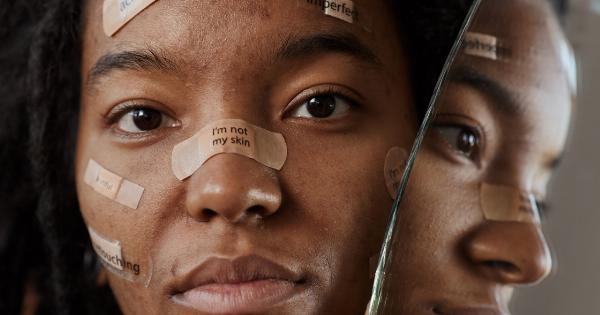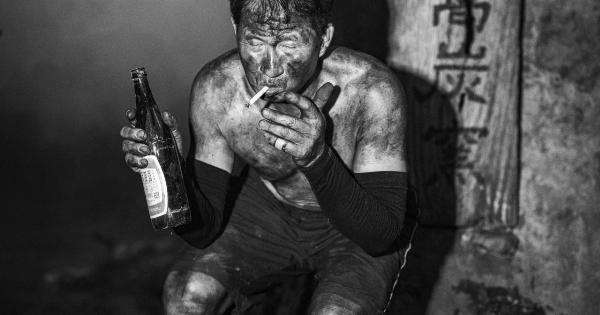Acne is a common skin condition that affects millions of people worldwide. It is characterized by the presence of pimples, blackheads, whiteheads, and other types of blemishes on the face, neck, chest, and back.
While acne is primarily a physical condition, it can also have a significant emotional impact on those who suffer from it. In this article, we will explore the emotional burden of acne and discuss some ways to deal with it.
The Stigma of Acne
One of the most significant emotional burdens of acne is the stigma attached to it. Acne sufferers are often viewed as unattractive, dirty, or unhygienic, which can negatively affect their self-esteem and confidence.
It can be challenging to deal with the constant judgment and criticism, especially since acne is a medical condition that is often out of the sufferer’s control.
Moreover, acne can affect people of all ages, genders, and races. However, there is a common misconception that acne only affects teenagers.
This belief can lead to further stigmatization of young people who suffer from acne, which can result in feelings of shame and self-consciousness.
The Psychological Impact of Acne
Acne can have a profound psychological impact on those who suffer from it. It can lead to feelings of anxiety, depression, and social isolation.
Sufferers may avoid social situations, activities, and events due to their low self-esteem and fear of judgment. This can lead to a lack of social support, which can further exacerbate the emotional burden of acne.
Suffering from acne can also make people feel like they are in a vicious cycle. They may feel that their skin condition is preventing them from achieving their goals and fulfilling their potential.
Acne sufferers may find it challenging to focus on anything else when their skin is constantly on their mind.
The Importance of a Support System
Dealing with the emotional burden of acne can be challenging, but having a support system can make a significant difference.
Friends and family can provide emotional support, help to build self-esteem, and encourage sufferers to pursue the things they enjoy. Reaching out to other people who have experienced acne can also be helpful as they can provide advice, tips, and encouragement.
Moreover, seeking professional help may be necessary for some people. Psychologists, counselors, and therapists can provide guidance in building self-esteem and managing anxiety and depression.
They can also help sufferers to develop coping mechanisms for dealing with the emotional burden of acne.
Self-Care and Acne
Self-care is essential for everyone, but it is particularly crucial for those who suffer from acne. Good skincare habits can help to reduce the severity of acne, prevent scarring, and promote healing.
This can lead to an improvement in self-esteem and confidence.
There are many skincare products and treatments available to help manage acne. Over-the-counter products such as cleansers, toners, and moisturizers can be effective in treating mild to moderate acne.
For more severe cases, prescription medications such as antibiotics, retinoids, and birth control pills may be prescribed by a dermatologist.
It is also vital for acne sufferers to practice good hygiene, avoid touching their face, and be gentle when cleansing their skin.
Wearing makeup can be helpful in covering up blemishes, but it is important to choose non-comedogenic products that do not clog pores.
The Road to Acceptance
Dealing with the emotional burden of acne is a journey that requires time, patience, and effort. It is crucial to remember that acne is a medical condition, and it is not a reflection of personal hygiene or attractiveness.
Accepting one’s skin condition and learning to love oneself is a critical step in overcoming the emotional burden of acne.
It is also essential to have realistic expectations when it comes to treating acne. Some people may find that their skin condition improves with self-care, while others may require medical intervention.
It is essential to be patient and consistent in one’s skincare routine and to work with a dermatologist to find the best treatment plan.
In Conclusion
Acne is a common skin condition that affects millions of people worldwide. While it primarily affects the physical appearance of the skin, it can also have a profound emotional impact on sufferers.
The stigma associated with acne, along with its psychological impact, can lead to feelings of anxiety, depression, and social isolation.
It is essential for acne sufferers to have a support system and to practice good self-care habits. Seeking professional help may also be necessary for some people.
Accepting one’s skin condition and learning to love oneself is a crucial step in overcoming the emotional burden of acne. To deal with acne and take care of oneself simultaneously is a tough journey, but it is possible!.




























